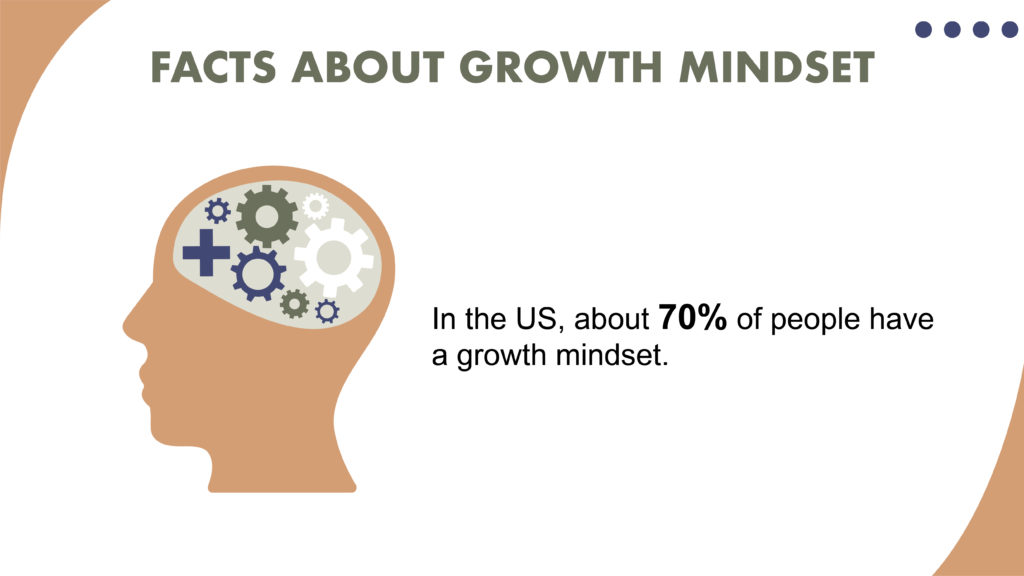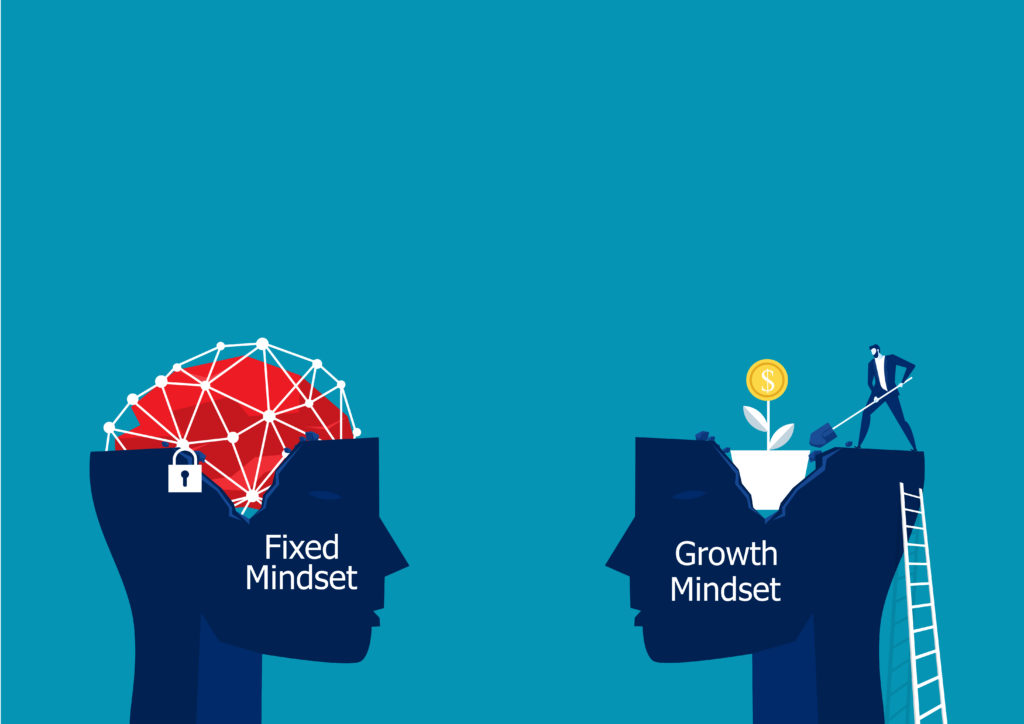Anything is feasible if you set your mind to it." Not quite, but you can definitely improve anything if you put your mind to it. Athletes can acquire a growth mindset, which boosts their overall performance. In the US, about 70% of people have a growth mindset. A growth mindset acts as the core conviction that your abilities and results shows great improvement with great amount of effort (as opposed to mere natural talent). It is a way of believing that it not only boosts your levels of encouragement but gives you the will to work towards your goals. It also enables you to better recover from setbacks along the road (otherwise known as resiliency). Sportspeople are the ones who diligently seek out methods for enhancing their performance and put out great effort to correct errors or poor habits. Athletes that hold firm ideas eventually succeed and win admiration of people. In contrast, a growth mentality encourages effort, growth, and perseverance. These fundamental motivational variables have a significant impact on an athlete's happiness and success in sports as well as the longevity of his or her career.

A Dangerous Partner: A Fixed Mindset
However, not everyone has the same fixed mindset because some people frequently adopt a different perspective known as the "fixed mindset."
The underlying idea that your aptitude is constrained genetically is connected to a fixed mindset. Simply put, this makes them think that success and results are to be fixed at a level defined by a specific skill set. A fixed mindset makes athletes fearful of trying and failing because they don’t move forward to excel in life. They frequently get embroiled in their mistakes and imperfections, constraining their skill levels with those of other athletes around them, rather than working hard to engage in their own advancement (as someone with the growth mindset would). A person with a fixed mindset may possess a variety of natural talents, but if they lack the drive to improve those talents, those talents are of little use.
By believing that their talent will be enough to get them where they want to go, they jeopardise their possibilities of success. The fact is that this fixed mindset isn't always the athlete's fault. Counting on how they interact with other athletes, coaches and parents can impact their thinking. Although many athletes enjoy receiving praise, "Children need honest and analytical criticism that pushes them toward progress."
How Michael Jordan's Mentality Made Him A Great Athlete?
Most people agree that Michael Jordan is the best basketball player to ever play the game. He is one of the greatest athletes of all the time. He achieved four gold medals with USA Basketball, including two at the Olympics, and was twice recognised as the sport's top male athlete. Jordan also served as the NBA's spokesperson for more than ten years.
As astonishing as it may sound, he suddenly decided to change his line. How could a guy walk away from success when he was at the peak of his career?
But what's even crazier? He switched his career to baseball, a game he had never played let alone known about its basics. A sport he hadn't played when he was a child, risking his physical abilities despite the fact that he was aware that millions of people would be watching every swing, toss, and pop fly. Was it ego? Monotony? Or whatever we can call a crazy man?
Ever since he was a child, he had this growth mindset that led him to achieve many goals and a successful career ahead in his life.
No. The cause was due to a different mindset. He had a growth mentality ever since high school; it was instilled in him as a result of being let go from his basketball team.
Jordan is a shining illustration of the growth mentality, to quote Carol Dweck, the author of Growth Mindset. Almost every famous athlete who has achieved long-term success possesses this mindset. It’s true that hard work always pays off one way or another.
Failure is inevitable when you push yourself past your present comfort zone. Even if you fail, learn from it and let it go. The only way to reach the top and linger there is to keep working hard. Not everything is about winning. Growing is.
What About Coaches' Mindset?
Naturally, instructors themselves are capable of having a fixed mindset. These coaches might suggest to their players that they set the highest priority on natural talent, spend minimal time with athletes they believe to be less skilled, and be intolerant of criticism from others (since they may see feedback as impugning their ability).
Business executives with a fixed mindset exhibit characteristics. The same managers are more motivated to support their employees' development and more open to receiving input from others. Additionally, a growth mindset coach is more likely to promote cooperation and camaraderie. However, if players are aware that their coach appreciates enthusiasm, education, and advancement, they can collaborate to generate these outcomes.
How Can This Course Help Athletes Build a Growth Mindset?
Self-awareness is necessary for using growth mindset tactics. Making space between an incident and one's reaction to it is frequently necessary for the intentional use of words and attitude cultivation. A professional must first become mindful of the language they employ under pressure.
After becoming conscious of their mindset, people have the option to either fall on the negative ways of naming their surroundings or to acknowledge their agency. People with growth mentality has the ability to grow, and the capacity to remain optimistic in the face of difficulty. A growth mentality may be necessary for success in sports and other endeavours because difficulties are a natural part of life. Though it won't always be simple, the effort will be worthwhile.
